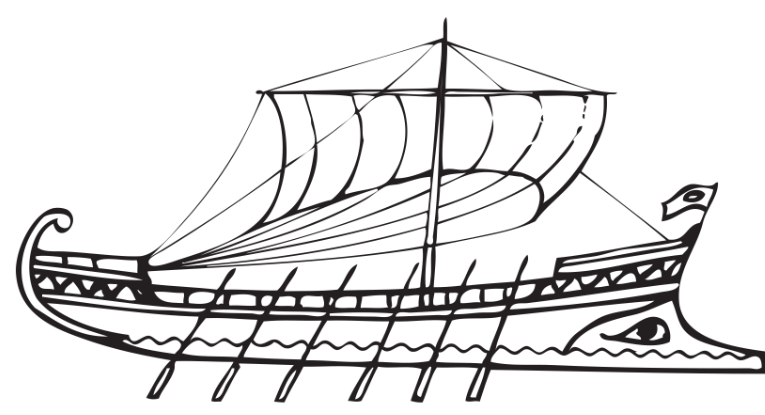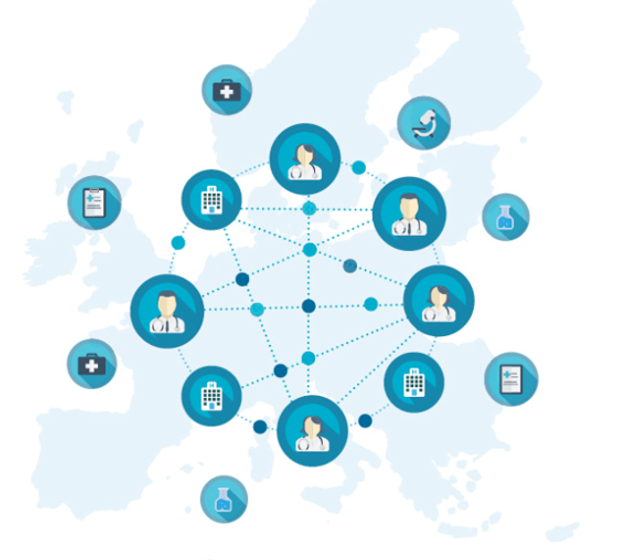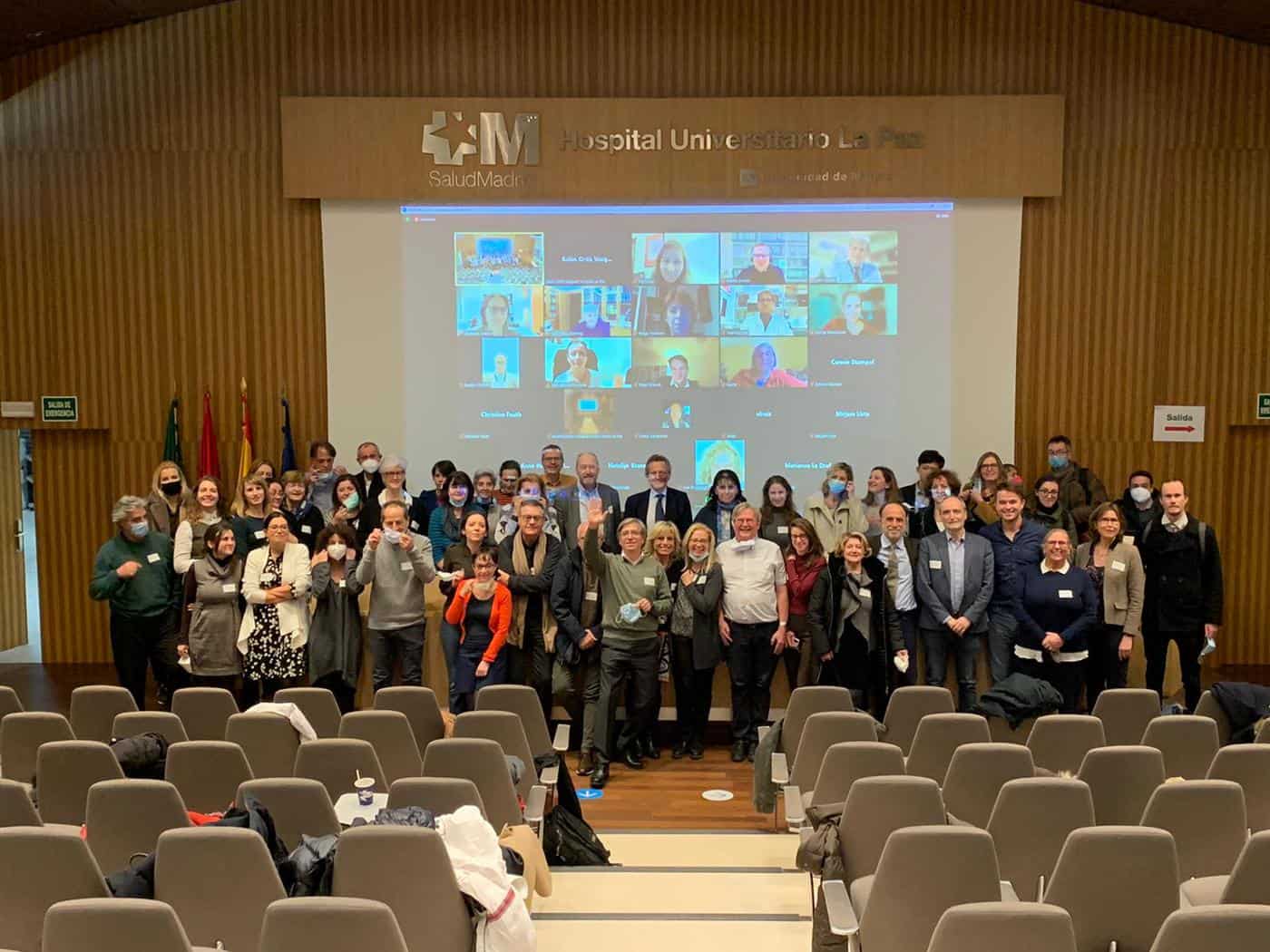What is the ERN-ITHACA
The ERN ITHACA is the European Reference Network (ERN) for rare malformative conditions, intellectual disabilities and neurodevelopmental disorders.
It was first established by Pr. Jill Clayton-Smith and the Manchester University NHS Foundation Trust, in 2017. After a successful development of the network, its coordination was transferred to French Assistance Publique – Hôpitaux de Paris (APHP) on November 2018, in anticipation of Brexit. Pr. Alain Verloes, head of the Robert Debré Clinical Genetic Department, was thus elected as the network’s new Coordinator.
The network today consists in 71 expert clinical centres and 45 European Patient Advocacy Groups (EPAGs) (see the list of our experts centers and ePAGs). Through sharing expertise, experience and resources, our community aim to further patient care, research and access to information about rare congenital malformations and intellectual disability.
The name ITHACA stands for Intellectual disability, TeleHealth, Autism and Congenital Anomalies. It also refers to the Odyssey that for many families the diagnostic journey of a child with a rare developmental disease represents.

To summarize, we are a patient-centred network that seeks to meet the needs of a highly specialized healthcare for patients with rare malformation syndromes and rare intellectual or other neurodevelopmental disorders of both genetic (genomic or chromosomal) and environmental origin, both diagnosed and undiagnosed.
ERN-ITHACA Network and governance
Our Network Members
Our members are European Health Care Providers (HCPs), more precisely University Hospital center that have expertise in rare malformative syndrome and neurodevelopmental disorders. To this day, the ERN counts 71 Centers coming from 25 out of the 27 EU Member States, plus Norway. Our community of HCPs deliver each year the needed care for approximately 51,500 new patients diagnosed with a rare developmental anomalies. The ERN ITHACA also has the largest number of entities, hence the largest scope and disease coverage amongst all ERNs.

In addition to these expert centers, the ITHACA network also counts our large ePAGs community: as of 2024, 45 European Advocacy Groups, aka patients associations, have joined the ERN to work with our clinicians and researchers. To know more about our ePAGs network, you can consult our dedicated webpage.
Board of Members
The Board of ITHACA consists in the Representatives of all 71 Members, ExCom Members who are not already Representatives of an HCP, and all 5 Members from the Patient Advisory Boad. It is the highest decision-making structure of ERN ITHACA and thus defines the missions and strategic direction of the network: how should the network activities develop and expanse themselves, how to collaborate with other European initiatives and partners. The Board gathers twice a year to discuss these strategic issues.

ERN ITHACA Board Meeting 2022 in Madrid
Executive Committee
The Executive Committee (ExCom) facilitates the dissemination of information from the EU to the network’s 71 HPCs. It also shares updates about Workgroups and ensure communication between them. Members of the ExCom are:
- The ERN-ITHACA Coordinator
- All Project Managers from the Coordination Team
- The Chair and one co-chair of each WGs
- The Chair and co-chair of the Patient Advisory Board
- One Representative from Orphanet, the EJP-RD, and Solve RD
Each ExCom members has one vote, except for the Coordination Team who has two in total. All WG’s co-chairs with no voting rights may be invited to Board meetings by the coordinator. In the event of a tie vote, the ERN coordinator’s vote prevails.
The Executive committee has 6 bimestrial meetings per year: 5 digital meetings (every 2 months), and 1 face-to-face meeting tgat is held during the Congress of the European Society of Human Genetics (ESHG). The agenda and minutes are prepared by the Project Managers.

ExCom face-to-face meeting in Berlin, ESHG Congress 2024
WorkPackages
ERN ITHACA activities are organized into 10 Workpackages. The first six ones follow the European Commission recommendations to harmonize organizational structure across all ERNs. To this backbone, ITHACA has added four Workpackages: two dedicated to activities strongly linked to the clinical research (WP Research and and WG Registry), and the remaining two that cover the patient-oriented activities (share, care and cure) in the two fields of expertise of the ERN-ITHACA: neurodevelopmental disorders and malformation syndromes.
Working Groups and Task Forces
The Workgroups are the driving force behind the ERN’s actions: they translate the strategic axes defined by the Board and ExCom into concrete projects and actions. A Workpackage may involve several Workgroups and the attachment of a Worgroup to a Workpackage may evolve with time. Each Workgroup is driven by a Chair, who is a member of an ITHACA HCP, and is chosen for his or her expertise in the field. The Chair then put the Workgroup in place by bringing together sevel other experts to collaborate on a given subject.
The activity within a Workgroup is divided into several Task Forces, each supervised by a Taskforce leader, who acts as one of the Workgroup’s co-chair. One person can be leader of several Taskforces and the Chair himself is responsible for at least one Taskforce. Co-chairs are appointed on the basis of their personal expertise, and do not necessarily have to be members of an HCP.

ERN-ITHACA organisation chart
